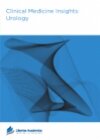


 Xiangyi Lu
Xiangyi Lu
Dr Xiangyi Lu, Ph.D, is an Associate Professor at the Institute of Environmental Health Sciences and Department of Biochemistry and Molecular Biology, Wayne State University, Detroit, Michigan. Dr Lu initially came to the US from China through the prestigious CUSBEA Scholarship. Later, she received her Ph.D in Molecular Pharmacology from Albert Einstein College of Medicine, Bronx, New York, and postdoctoral training in Molecular Genetics from Harvard Medical School. Her earlier research interests focussed on growth factor signalling pathways during development processes and cancers.
Her current research focuses on the polycystic kidney disease (PKD), which is a common genetic disorder affecting primarily the kidney but also many other organs in humans. Dr Lu also investigates other topics of Urology, specifically, the interaction between sperm and the female reproductive tract. Interestingly, many PKD genes expressed in the kidneys are also expressed in the sperm. Dr Lu’s group discovered that the PKD2 gene plays crucial roles in guiding the movement of sperm through recognition of yet unknown guidance signals in the female reproductive tract. Her research promotes the basic understanding of urological processes and what may go wrong to cause diseases. Research in Dr Lu’s lab has been funded by March of Dimes Birth Defect Foundation, American Cancer Society, PKD Foundation and the National Institute of Health. Dr Lu has served in NIH study section.
As Editor-in-chief, Dr Lu’s goal is to help to increase both basic and clinical research in all areas of Urology that encompasses nephrology, urinary tracts of both males and females, and infertility. We welcome submissions not only on clinical research but also basic research as long as it promotes the understanding of urological processes in humans. Topics of interests come in a variety of forms and include but are not limited to, in-depth reviews or short essays, original observations or new interpretations of an “old” disease, research articles in model organisms or clinical research in humans, human epidemiological studies or insect population analysis, genes or environment or sexual behaviour induced urological abnormalities, evidence for disease modifying genes in urological disorders, developmental aspects of male and female reproductive systems, secretion of the male and female reproductive systems and its benefits. Clinical Medicine: Urology aims to become the grass-roots journal where clinicians look for clues for better diagnosis and treatment, and researchers look for translation from bench science to clinical relevance.
>> Dr Lu's latest call for papers
It's really an excellent experience reviewing papers for Libertas Academica. Every step from obtaining the manuscript to submitting the review is so easy. Thanks to the well-designed webpage and well trained crew.
Facebook Google+ Twitter
Pinterest Tumblr YouTube